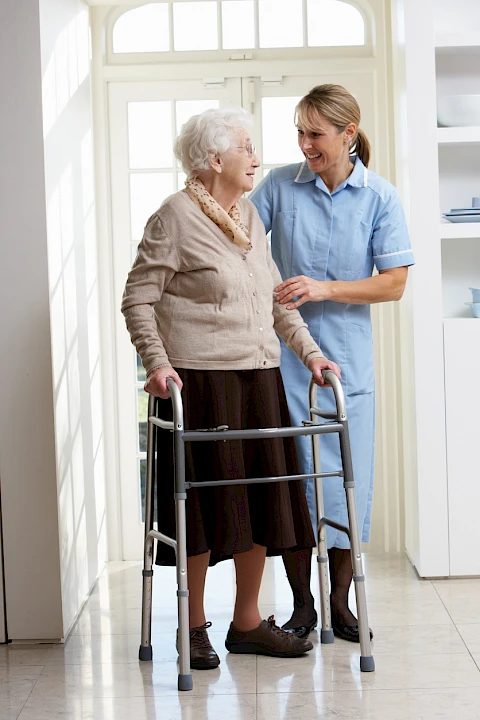
When your senior loved one reaches a point where they need additional care, you may find knowing where to start overwhelming. Understanding the different types of caregiving, such as medical care and companion care, is crucial. This knowledge helps you decide what kind of support is right for your loved one and what you can provide. This article explains the various options for professional assistance from Senior Helpers.
Defining Medical Care
Medical care focuses on addressing the health needs of your senior loved one. This type of care requires specialized training and qualifications. Typical tasks involved in medical care include:
- Managing medications
- Conducting wound care
- Providing physical therapy
Medical caregivers, such as nurses or physical therapists, are usually certified or licensed health professionals. They have the skills and knowledge necessary to handle more complex health issues and ensure that your loved one receives the proper care.
What is Companion Care?
Companion care centers around social interaction and assistance with day-to-day activities. Typical tasks involved in companion care include:
- Providing social interaction
- Assisting with daily activities like dressing and meal prep
- Offering transportation to appointments
The emotional and psychological benefits of companion care are significant for seniors. Regular social interaction helps combat loneliness, boosts mental health, and enhances overall well-being.
Assessing Your Ability to Provide Care
Before deciding what type of care to provide or arrange, you must assess your ability to take on caregiving responsibilities. Factors that come into play include the time you can commit to caregiving duties and your physical and emotional capabilities.
It's essential to be honest with yourself and realistic about your limitations. Your employment and financial situation dictate how much time you can realistically devote to caregiving.
As your family member weakens, they will also need additional physical support. You need to access it if you can safely move them. Additionally, caregiving includes more household chores and the responsibility of helping your loved one with bathing and toileting functions.
Deciding What Care to Arrange
Knowing when to consider professional care can make a significant difference in the well-being of your senior loved one and yourself.
When to Consider Professional Medical Care:
- Your loved one has complex health issues that need specialized attention
- You feel overwhelmed by medical caregiving tasks
- You are concerned about making medication errors or improperly managing health conditions
When to Consider Professional Companion Care:
- Your loved one needs help with daily activities and social interaction
- You are not able to spend enough time providing companionship
- Your senior family member feels lonely or isolated
Balancing personal caregiving with professional assistance is often the best approach. Combining different types of care may make sense to adequately meet all your loved one's needs.
We Can Help
Deciding between medical care and companion care involves understanding each type of care and assessing what you can realistically provide. Always consider the well-being of your senior loved one and your capabilities and limitations. It's essential to make informed decisions that will ensure the best quality of life for your loved one.
If you reside in Houston, Conroe, Humble, Magnolia, or Tomball and seek the support of your senior family member, please contact usat Senior Helpers North Houston Area. We would love to tell you about our services for seniors and their caregivers, such as Companion Care and Chronic Disease Care.